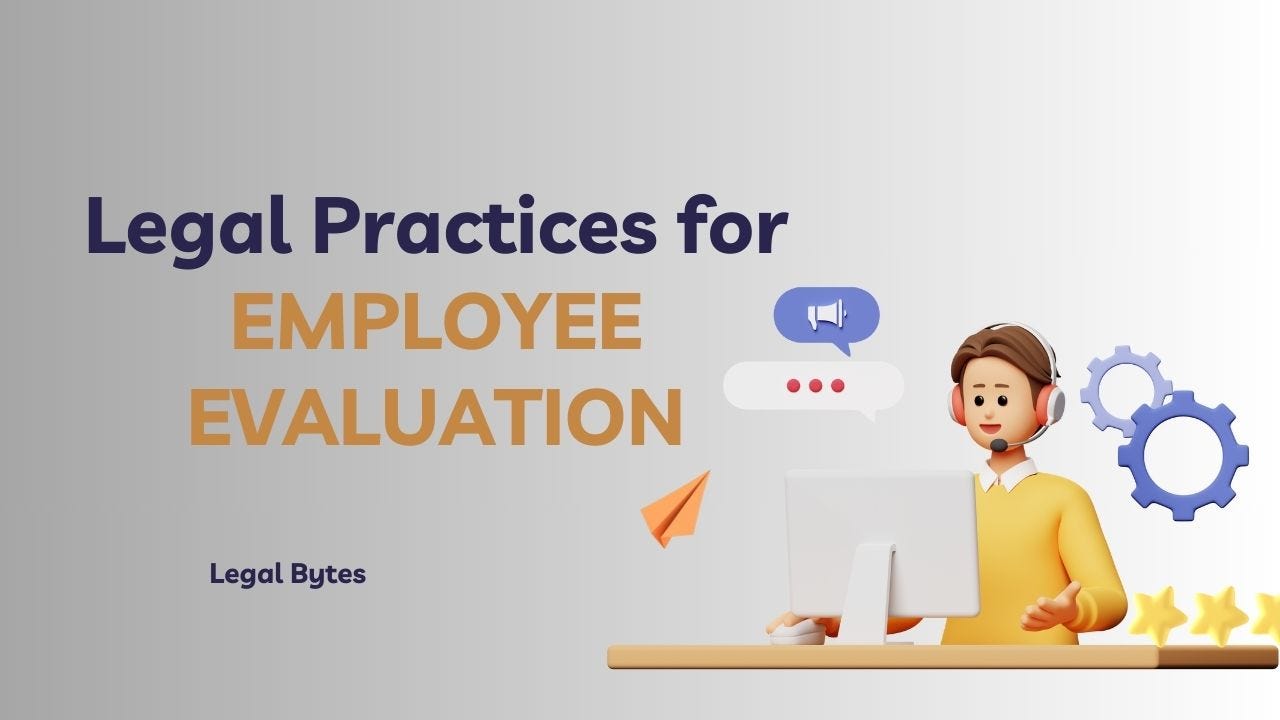Legal Implications of Data Analytics in EMPLOYEE PERFORMANCE EVALUATION
Is your startup using data to evaluate employee performance? If yes, you're not alone
In today’s tech-driven world, startups and SMEs are increasingly turning to data analytics tools to track performance, measure productivity, and guide HR decisions.
But the question most Nigerian founders aren’t asking is, “Are you using employee data legally and ethically?”
In this post, we’ll break down the legal implications of using data analytics for employee performance evaluations, specifically for Nigerian businesses. Whether you're an employer, HR professional, or lawyer advising startups, this guide will help you stay compliant and build a people-first work culture.
What Is Data Analytics in Employee Evaluation?
Data analytics in HR refers to using tools and software to collect, measure, and analyze employee activities and performance indicators.
Some common use cases include:
Tracking KPIs (e.g., sales closed, tickets resolved, hours worked)
Monitoring attendance or work hours via biometric or digital tools
Analyzing communication patterns on Slack, Teams, or email
Generating performance reports from project management tools like Trello or Asana
While these tools offer insights, they also process personal data, which means your legal obligations kick in.
What Nigerian Laws Apply to Employee Data Analytics?
1. Nigeria Data Protection Act (NDPA), 2023
This is Nigeria’s main data privacy law, enforced by the Nigeria Data Protection Commission (NDPC). It affects every employer who collects or processes employee data.
Key points:
Employee data is classified as personal data
Any analytics tool that collects personal or behavioural data counts as data processing
Employers are “data controllers” and must comply with principles of lawfulness, fairness, and transparency
2. Labour Act (Cap L1, LFN 2004)
While the Labour Act doesn’t specifically mention data analytics, it outlines employee rights around:
Fair treatment
Dignity at work
Justifiable reasons for termination or discipline
Using flawed or biased data in evaluations could violate these rights.
3. Cybercrimes (Prohibition, Prevention, etc.) Act, 2015
Employers must ensure:
Data security
Protection against unauthorized access
No cyber surveillance without legal justification
Legal Risks of Using Data Analytics Without Proper Safeguards
If you don’t approach employee data properly, you could run into several issues:
Lack of Consent or Transparency
Employees must know:
What data is collected
How it’s used
Their rights under the NDPA
Bias and Discrimination
If the algorithm favors certain groups over others (e.g., gender, age, department), it could lead to unfair treatment or workplace discrimination claims.
Over-surveillance
Constant monitoring (especially of remote workers) may breach privacy expectations. This includes:
Tracking keystrokes
Reading private messages
Using CCTV or monitoring software without limits
Unlawful Termination
If decisions are based on flawed analytics or misunderstood data, it may not meet the “just cause” test under the Labour Act.
Legal Best Practices for Nigerian Employers
Here’s how to stay legally compliant while still enjoying the benefits of data analytics:
1. Conduct a Data Protection Impact Assessment (DPIA)
Before deploying any analytics tool, assess:
What data is collected
How it impacts employee rights
The risks involved and how to mitigate them
Pro Tip: The NDPC encourages DPIAs for high-risk processing—employee surveillance and evaluations fall into this category.
2. Update Employment Contracts and Policies
Make sure your contracts and internal policies:
Explain the use of analytics tools
Define what data will be collected and why
State the legal basis (e.g., legitimate interest or consent)
3. Use Data Minimization Principles
Only collect what’s necessary. Avoid:
Irrelevant metrics (e.g., tracking browser history unless justified)
Unstructured data that may confuse or mislead
4. Train Your HR and Tech Teams
Your HR and IT staff should:
Understand the NDPA obligations
Know how to handle personal data securely
Avoid over-relying on raw data to make human-centered decisions
5. Give Employees Access to Their Evaluation Data
Under the NDPA, employees have the right to access and correct their data. Make sure:
Performance reports are shareable
Employees can challenge or explain scores
Practical Takeaways
If you’re using employee analytics in your Nigerian startup or SME, here’s what to do today:
Conduct a DPIA
Update your HR policies and contracts
Disclose all data use clearly
Train your managers on data fairness
Respect employee privacy rights
Document all consent and data processing steps
Final Thoughts: Use Data Ethically, Lead Legally
Data-driven decisions are the future of work, but they must be guided by law and empathy. As Nigerian startups evolve into tech-savvy employers, legal compliance can no longer be an afterthought—it must be part of your culture.
Protect your employees. Protect your startup. And always balance innovation with regulation.
About Legal Bytes
We are Adune Legal’s weekly Newsletter, which simplifies the Law for Busy Executives, Entrepreneurs, and Tech Enthusiasts interested in the legal aspects of Business, Technology, and Intellectual Property.
We love emails from our readers— reply to this email and let us know your thoughts and suggestions.
WAIT!!!
Become a paid subscriber and access;
Q&A sessions with Nneoma Grace via chats on Substack.
Detailed Legal Templates and examples to save you time and legal fees
Expert Interviews and Case Studies
Don't miss out on these perks - subscribe today and start enjoying it!
Thanks for reading Legal Bytes
Adune Legal’s Team
P.S. Like Legal Bytes? Please forward us to a friend.
P.P.S. Was this publication forwarded to you? Sign up here & see previous publications.



